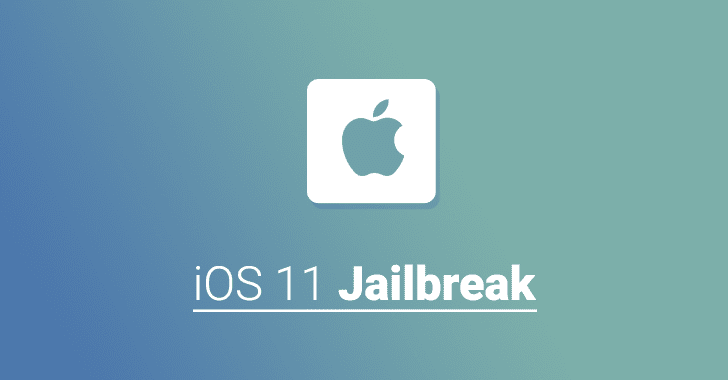Google Researcher Releases iOS Exploit—Could Enable iOS 11 Jailbreak
As promised last week, Google's Project Zero researcher Ian Beer now publicly disclosed an exploit that works on almost all 64-bit Apple devices running iOS 11.1.2 or earlier, which can be used to build an iOS jailbreak, allowing users to run apps from non-Apple sources.
On Monday morning, Beer shared the details on the exploit, dubbed "tfp0," which leveraged double-free memory corruption vulnerabilities in the kernel, the core of the operating system.
Here, "tfp0" stands for "task for pid 0" or the kernel task port—which gives users full control over the core of the operating system.
The Project Zero researcher responsibly reported these vulnerabilities to Apple in October, which were patched by the company with the release of iOS 11.2 on 2nd December.
While Beer says he has successfully tested his proof of concept exploit on the iPhone 6s and 7, and iPod Touch 6G, he believes that his exploit should work on all 64-bit Apple devices.
Another security researcher confirmed that the exploit released by Beer also works on his Apple TvOS 11.x and TV 4K running iOS 11.1.2.
What's worse? Since Apple's iOS mobile operating system and macOS desktop operating system share the same code base, the kernel for macOS is also vulnerable to the bug, according to a report published by Project Zero on Google's Chromium Blog.
Beer said he has also successfully tested the vulnerability on macOS 10.13, running on a MacBook Air 5.2, which Apple patched in macOS 10.13.1.
Earlier versions of the operating systems are still vulnerable to the exploit, which basically grants complete core access to the operating system and that is really what the jailbreak community requires.
Although we have not heard any news about iOS jailbreaks from the jailbreak community from very long, Beer's exploit could be the basis for a future iOS 11 jailbreak, allowing iPhone and iPad users to install third-party OS customizations via apps that are restricted by Apple.
If iOS 11.1.2 jailbreak surfaces in upcoming days, you can still downgrade to iOS 11.1.2 using iTunes even if you have updated to iOS 11.2 because Apple is still signing the operating system.
On Monday morning, Beer shared the details on the exploit, dubbed "tfp0," which leveraged double-free memory corruption vulnerabilities in the kernel, the core of the operating system.
Here, "tfp0" stands for "task for pid 0" or the kernel task port—which gives users full control over the core of the operating system.
The Project Zero researcher responsibly reported these vulnerabilities to Apple in October, which were patched by the company with the release of iOS 11.2 on 2nd December.
While Beer says he has successfully tested his proof of concept exploit on the iPhone 6s and 7, and iPod Touch 6G, he believes that his exploit should work on all 64-bit Apple devices.
Another security researcher confirmed that the exploit released by Beer also works on his Apple TvOS 11.x and TV 4K running iOS 11.1.2.
What's worse? Since Apple's iOS mobile operating system and macOS desktop operating system share the same code base, the kernel for macOS is also vulnerable to the bug, according to a report published by Project Zero on Google's Chromium Blog.
Beer said he has also successfully tested the vulnerability on macOS 10.13, running on a MacBook Air 5.2, which Apple patched in macOS 10.13.1.
Earlier versions of the operating systems are still vulnerable to the exploit, which basically grants complete core access to the operating system and that is really what the jailbreak community requires.
Although we have not heard any news about iOS jailbreaks from the jailbreak community from very long, Beer's exploit could be the basis for a future iOS 11 jailbreak, allowing iPhone and iPad users to install third-party OS customizations via apps that are restricted by Apple.
If iOS 11.1.2 jailbreak surfaces in upcoming days, you can still downgrade to iOS 11.1.2 using iTunes even if you have updated to iOS 11.2 because Apple is still signing the operating system.
Have something to say about this article? Comment below or share it with us on Facebook, Twitter or our LinkedIn Group.
